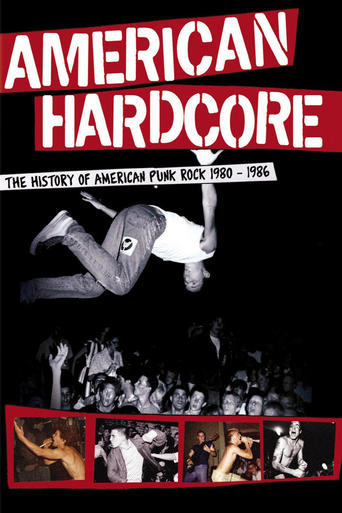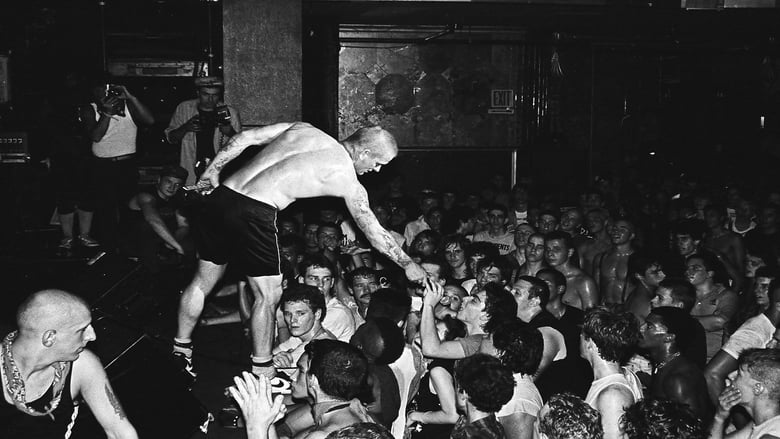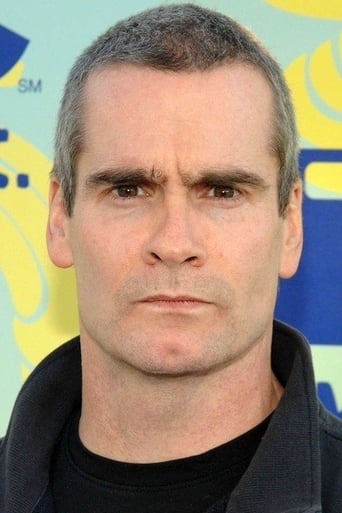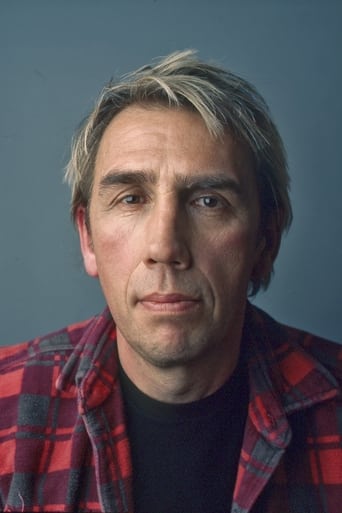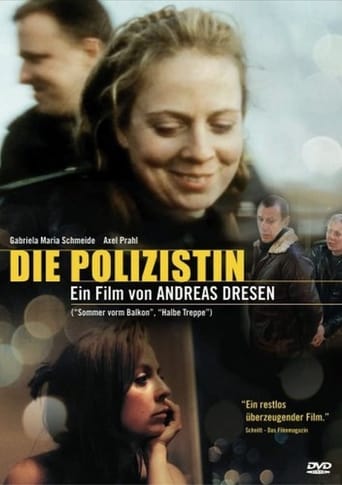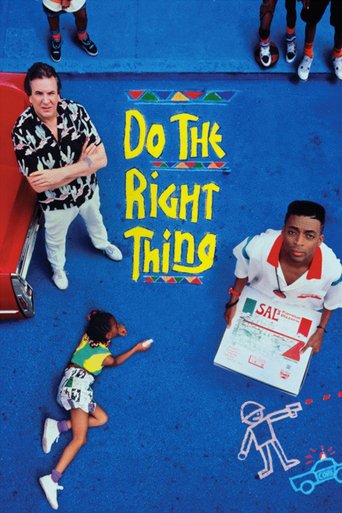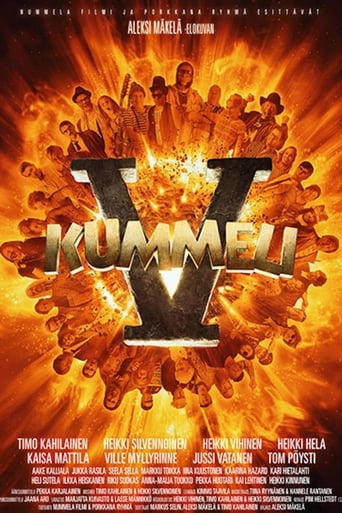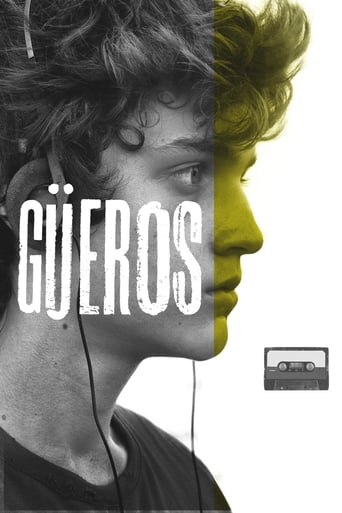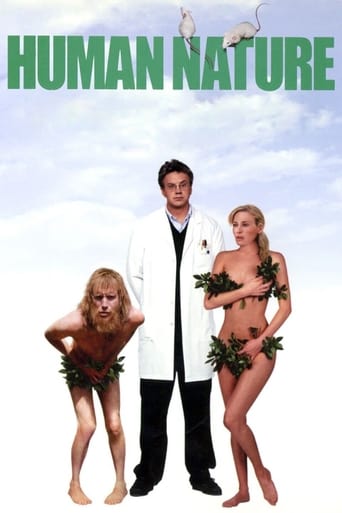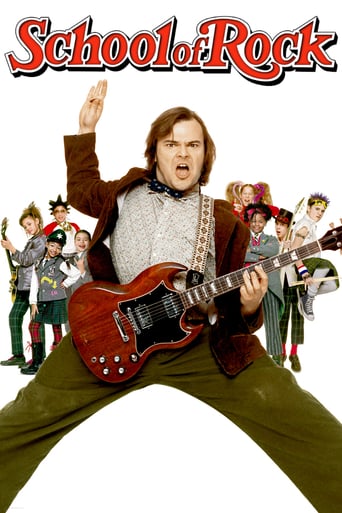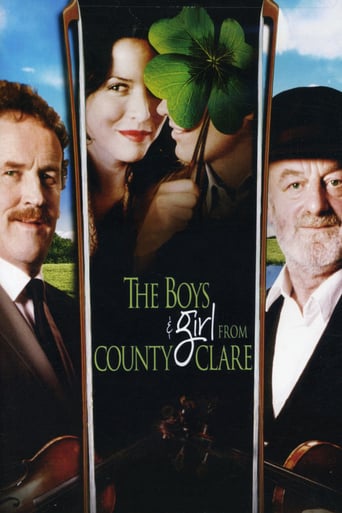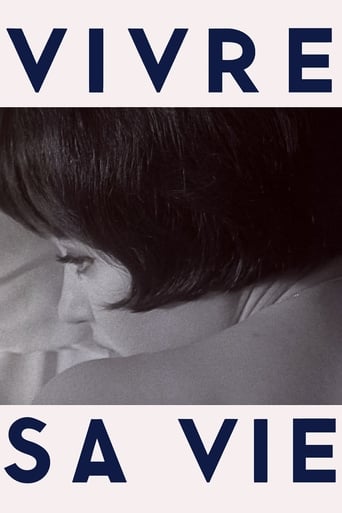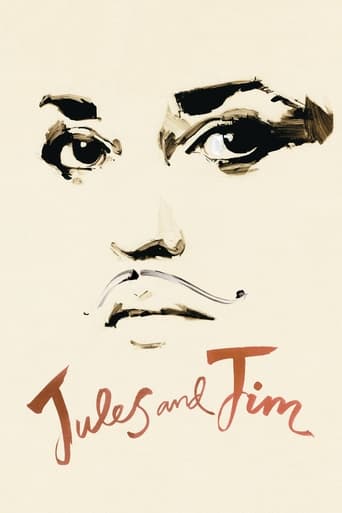American Hardcore (2006)

Inspired by Steven Blush's book "American Hardcore: A tribal history" Paul Rachman's feature documentary debut is a chronicle of the underground hardcore punk years from 1979 to 1986. Interviews and rare live footage from artists such as Black Flag, Bad Brains, Minor Threat, SS Decontrol and the Dead Kennedys.
Watch Trailer
Cast


Similar titles
Reviews
You knew this was just going to be some typical crap just a minute and a half in, when some clueless idiot starts spewing nonsense about Reagan and pretty much is saying the "mean white man" had to put women and "negroes" back in their place, because they became too "uppity." It's downright hilarious when you see idiots such as he talk this nonsense, and add that punk was a "reaction" to the right-wing. He even defends Jimmy Carter and how he spoke of "peace," you have got to love it when anyone has the nerve to get in front of a camera and actually defend Jimmy Carter. (If the democrats are all for peace, why is it they are always by far the most hateful, intolerant and violent people?) And how perfect is it that the man who created punk rock, Johnny Ramone, was a right-wing republican and conservative. The film ignores that so any punks in the 80s were on the right. The bands are good but when it gets political, you pretty much feel like you are dealing with people who are brain dead.Punk is a great music but unfortunately like other forms of music, when the musician gets political, he or she spews out nonsense. Maybe that guy has actually learned a thing or two about the real world by now.
I know because of copyright issues the misfits and the Dead Kennedys were not able to b put in but then honestly they shouldn't of done the movie those r the 2 most popular, most influential bands from that scene and era and to make a history about the hardcore punk scene without them is just plain stupid, movie wasn't very good anyways. They talked about some great legendary band but leaving out the 2 greatest legendary bands very bad. Just plain and simple if you want to make a movie about the history of hardcore punk it is 100% necessary that the misfits and the dead kennedys be involved and if you can't get them it's a stupid idea to make the film
Nice and nostalgic for those who were there.Potentially misleading and perhaps too long for those who were not there and don't get the nostalgia.My comments are more of a reaction than a review. I won't pretend to be objective. I lived through this and experienced it differently from the 'leading lights' who were interviewed in the film. I met and even hung out with a few of the folks in the film over the three years (1980-1982) when I was in and out of NYC and Philly scenes. Of course, hardcore had not yet been commercialized at this time and none of them were regarded as legends. It's great to see that most of them are still true believers and haven't developed regrets, but it's really odd that they are still saying exactly the same things about HC that they were saying twenty years ago. Isn't hindsight supposed to be 20/20 or something? Well... really... it's all a matter of perspective, and that's the point of this review. From 1979 to 1984 I was a member of a band which crossed over from punk to hardcore in 1980. I began with them at the age of 14 and stuck around until, as Ian Mackaye put it, "hardcore checked out". Being part of the NJ/NYC punk community, and having grown up in a small rural town in central Jersey, my perspective on the whole business is a bit different.... But, again... that's the point, isn't it? From my point of view, the film has one major flaw - Most of the interviews seem to have developed out of a set of basic misconceptions: (1) that hardcore was about something in particular, (2) that the leaders of the most popular hardcore bands were somehow experts in what hardcore was and (3) that the portion of the country where hardcore got the most early media attention was somehow more important than the rest of the world. I was never a big fan of hardcore's regionalism (which was a big deal in the scenes I was involved with) and was interested mainly in bands which were original, energetic and fun regardless of where they came from. Sadly, the east coast frequently exhibited symptoms of an inferiority complex because of the commercial and media attention California got - a couple of examples are the titles of early eastern Punk and HC compilations:Philadelphia: Get Off Our Backs We're Doing it Too. NYC: New York Thrash and The Big Apple Rotten to the Core Boston: This is Boston, Not L.A.Telling, ain't it?Because of my own experiences, the interviews of NYC, Washington DC and Boston band members resonated more strongly with me than the California-centered stuff. Don't get me wrong, I loved the DKs, Black Flag, the CJs, Fear, X, UXA, The Avengers, and many other West-coasters, but I still reject the adoption of the archetype American Punk lifestyle which was drawn out of stereotypes imported by the mass media from California. From my perspective, punk was truly anti-conformist, and CoC's comments about the fascist anti-fascism that became a major component of HC late in it's life were dead-on accurate. It's as if a whole bunch of fools turned on Quincy, saw an inaccurate representation of slam dancing based on things that were happening in particular parts of Southern California (where Quincy was filmed) and all-of-a-sudden decided to get mohawks and leather jackets and go beat up people at shows. Maybe New York police have bigger and better things to do, but I do not remember a single of the 100s of shows I went to or played which were ever even threatened with a shut-down, let alone attracting the attention of more than a few squad cars. And honestly, I don't remember any NYC or Philly cops doing anything much worse than shaking their heads and rolling their eyes during these incidents. Maybe NYC punks were radically different from Calpunks, because I knew very few people in HC and/or punk who would ever espouse hating any group of people in a broad-brush manner such as police and hippies. For me and most of my friends HC was a chance to have fun, get up on stage and play, help other people have fun, and to express ourselves socially and politically with an audience which could relate and appreciated pretty much whatever you threw at them. Most of the messages were against violence, against stereotyping, against injustice, and even against drugs. And the bands all supported each other, whether or not they agreed about politics, music or whatever. Really nice. Sure the dancing got kind of rough at times, but it only got really bad after that fateful episode of Quincy. This is a good film. I was very excited to see the respect with which the Bad Brains were treated and the range of excellent bands chosen for the interviews. The film is really just a lengthy series of edited monologues and dialogs from interviews conducted by the director. The cinematography is straightforward and really nothing special - fine for what was intended. There are relatively few musical interludes (mostly poorly filmed cam-jobs), and no complete songs. The film serves well as a memoir for old punks like myself, and a good introduction to the major tropes and official mythology of the hardcore movement for those of later generations. Don't mistake the generalizing opinions of the interviewees (or mine for that matter) to be representative of anything besides the individual opinions that they are, however. And remember always - no matter what anybody says about hardcore, Gang Green summed it all up better than anybody in their song "Have Fun"We just wanna have some fun We just wanna have some fun While we're young enough To get away with it.!
A blistering, frothing era of misfits and outcasts venting their collective frustrations into a punk hardcore genre feels underwhelming here in it's attempt to reminisce about being a part of that anti-musical scene. Interviews with many of the underground's more respected (something I would not have any knowledge to debate) original hardcore members consume the majority of this basically constructed mass recollection, and while the punk attitude (with a side of bitter old geezer) flies fast, proud, and hard in the varied lineup of interviewees, little insight is gleamed during the repetitious bickering- largely made up of many of these "real punks" insisting that they have rocked harder then you ever will. A healthy contempt for mainstream normalcy would obviously be a precursor to any working punk band's ethic, but constant negativity and elitism masking for edgy commentary proves that time has not been kind to many of these rock warriors. Proving the exception to this stereotypically shallow attitude, the filmmakers do manage to find a few contrasting punks who offer to take powerful themes these raw, unbridled, often violent bursts of creative energy they helped pioneer and contextualize it in a way that is actually inspiring to someone who wasn't directly involved in this scene that supposedly died in 1986. Amongst a dazzling (though certainly dizzying as well) wealth of never before seen low quality footage showing these erratic outbursts of sound from numerous bands documented here, an initial grip this music may have around your adrenal gland will slowly become as repetitious as their interview counterparts. An interesting glimpse into a radical time for young American music, but lacking most of the depth to make this truly relevant to all but hardcore Hardcore fans.

